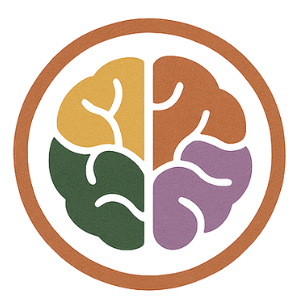Unmasking Reimagined: A Late-Diagnosed Perspective
I'm realizing that trying to "unmask" is the wrong perspective.
I've been camouflaging since before I was five. A decades-long coping mechanism developed to protect myself from a destructively unstable mother, resulting in my hiding from the world ever since. A hard shell with many cracks has always been a part of who I am.
Childhood neglect and trauma dysregulates the nervous system, especially in autistic people with ADHD. My parents didn’t have the best examples to draw upon for raising children. They thought responding to a crying baby would reinforce fussiness, without realizing that neglect could result in a failure to thrive. Without emotional support, years of trauma and masking manifested as chronic pain at an early age. Camouflaging was a means of survival for things that no longer served me. Life in many ways is what happens to you, and we are the product of not just our makeup but also of our history.
The ‘real’ me is multilayered, protected by decades of masks that represent different chapters of my life. Removing all this will erase who I am, resulting in someone who’s not quite me and completely exposed. I’m learning that unmasking doesn't mean figuring out who that person could’ve been and transforming into them. My therapist, Kayla, has been encouraging me to practice self-compassion, to welcome the unique person I’ve become. Showing myself kindness is so foreign to me, especially after years of wrestling with a harsh inner critic. This new mindset is something I’m actively working on.
This process of finding myself is about accepting that many of my masks will always be a part of me, because they came from the core of who I’ve always been. Not every one of my masks has served me well, yet some have allowed me to interact with the world in a meaningful way instead of hiding.
Recognizing my difference without fully grasping its cause created room for parts of my authentic self to blend into the masks I wore. Now, I see that everything I’ve lived through has contributed to the current version of me. Unmasking means embracing an authentic Michael, one who no longer feels compelled to blend into neurotypical society. I’m starting to trust the cues I get from my body, letting go of the ruminations that no longer serve me.
Integrating my masked self with my neurodivergent, asexual and agender identity allows me to transform into my most authentic self. I'm still not sure what that looks like yet, but if I can find spaces where I can fully unmask as my true self, that's all I really need to thrive.
As I’m learning to embrace this integrated version of myself, I’ve realized my experience might offer something valuable to others navigating their own complex relationships with masking and identity. There is nothing wrong with being neurodivergent, even with the world working hard to convince us otherwise. Self-acceptance is not a linear journey, and I’m proud to be a part of this community. By existing in society as an AuDHD adult and refusing to hide who I am, I’ll be helping to tear down one misconception at a time.
Come as you are, take what you need. I’ll be here.
